Follow along the RCD team as we head out on a field day with our partners at the La Jolla Band of Luiseno Indians!
The La Jolla campground, and surrounding communities, have been devastated by the Goldspotted Oak Borer Beetle (GSOB). GSOB is an invasive pest that devastates San Diego’s native oak species and was brought to our corner of Southern California on firewood from Arizona. The La Jolla Band of Luiseno Indians has used funds from the Department of Conservation’s Regional Forest and Fire Capacity Program through the Resource Conservation District of Greater San Diego County to combat GSOB and remove many dead and dying oak trees from the campground. As a part of their oak woodland reforestation efforts, the La Jolla Band of Luiseño Indians Natural Resource Program Director, Joelene Tamm, and her team, asked if we would like to join them in planting oak trees throughout the campground.
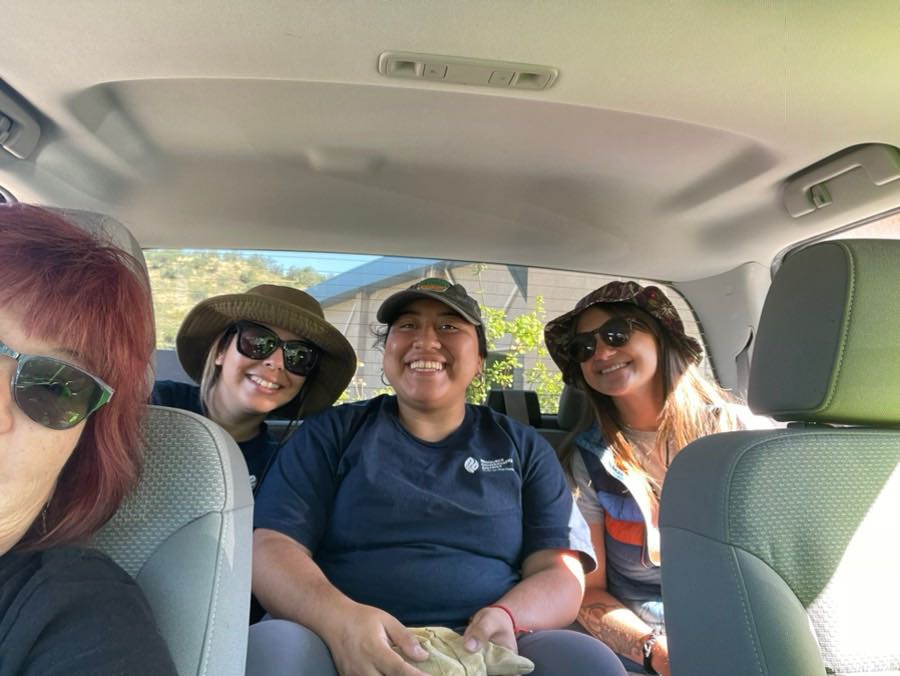
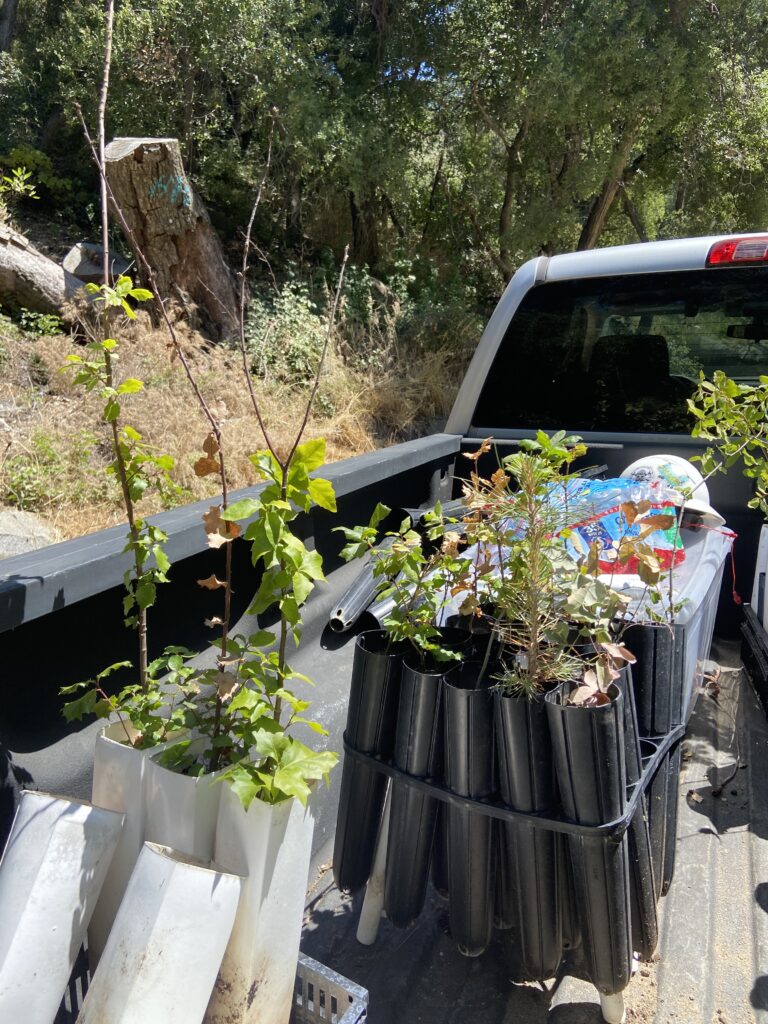
A field day is always a great day and driving to the campground was gorgeous! Arriving at the office, we met with the team to review the project plans. There were about 50 Coast Live Oak and Englemann Oak saplings in the back of the truck that we would be planting. Some of the oak saplings were grown from acorns collected on the La Jolla reservation, that were then propagated at San Diego State University and returned. A few of the oak saplings came from various reservations and about a dozen from our partners at San Diego Gas and Electric.
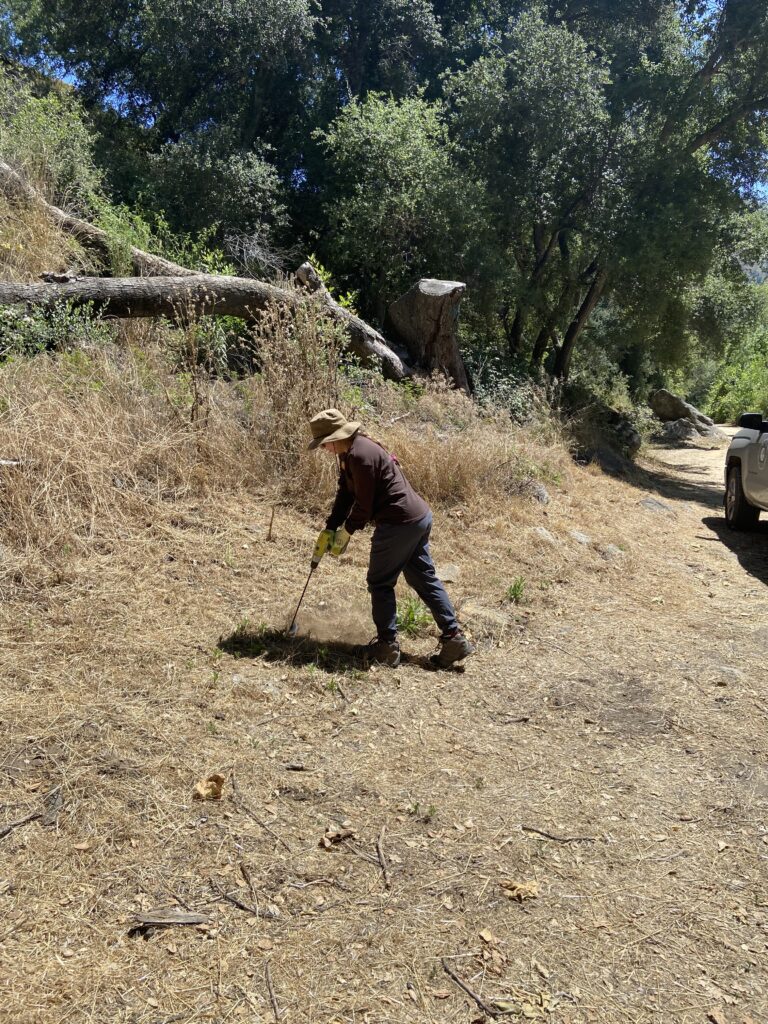
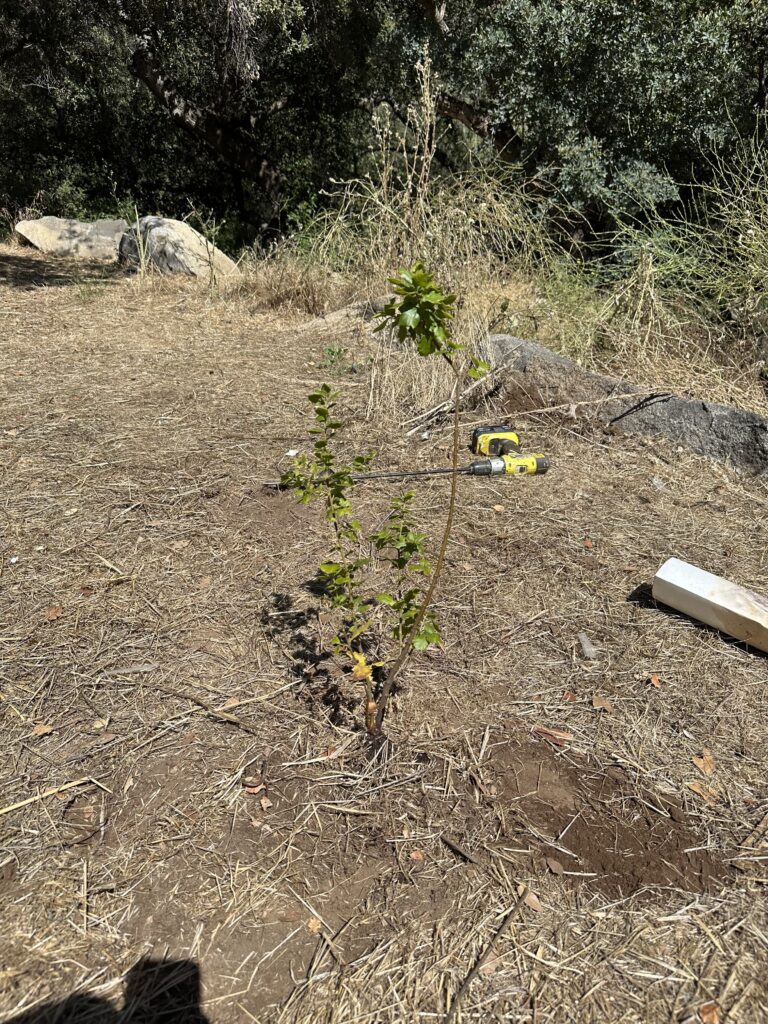
To ensure the highest probability of success for the oak saplings, we set out to find the ideal conditions to plant them. Oak saplings need an equal amount of shade and sunlight, and the team had to ensure the baby trees did not overcrowd other existing oak trees as they mature. For each plant, we used an auger and shovels to dig about a foot into the ground and carefully placed the oak trees inside. Once they were planted, we set up a fence and placed a pole to protect them from human disturbance and other wildlife. Within two days, all 50 plants were carefully planted and recorded in a GIS dataset.
Although the survival rate of oak saplings can be low, we are hopeful that careful planning and planting will increase success as oak trees provide critical habitat to many native species, shade for campers visiting the campground, and are an important cultural resource for the tribe.
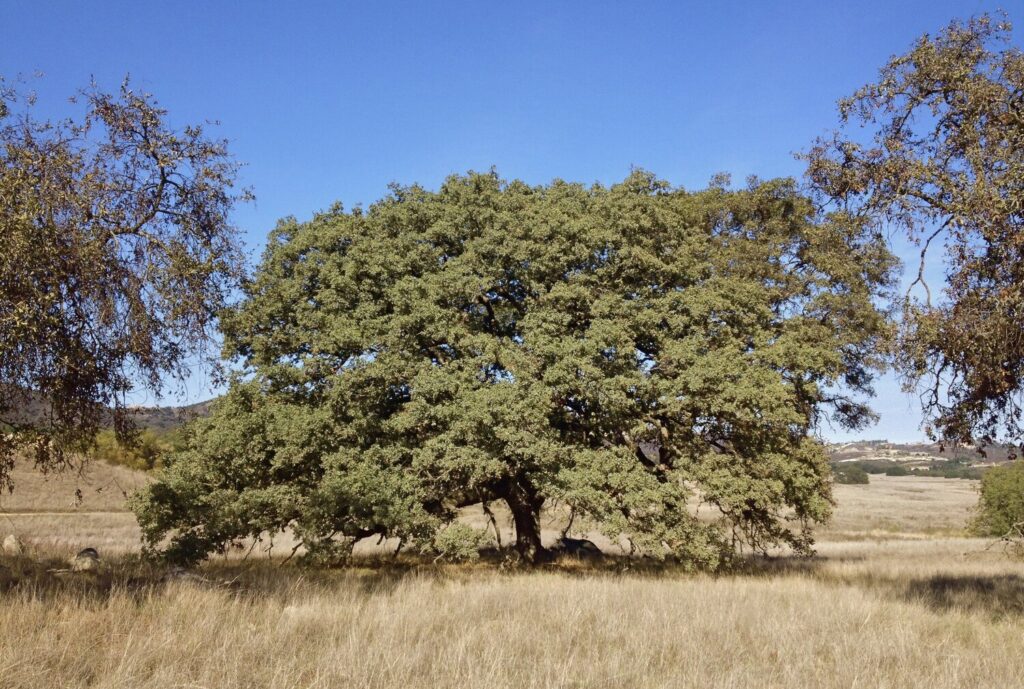
Want to learn more?
This is a great article about the history of oak trees and their importance in California ecosystems and to Indigenous peoples.
Learn more about the great work the La Jolla Band is doing and their Indigenous Fire, Forestry, and Fuels crew.
Volunteer! Tree San Diego often has events where community members can get involved in tree planting or outreach events.
